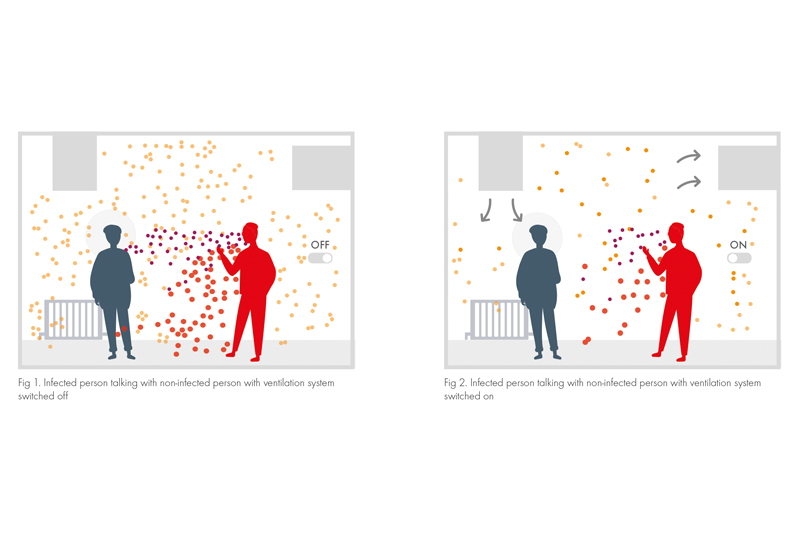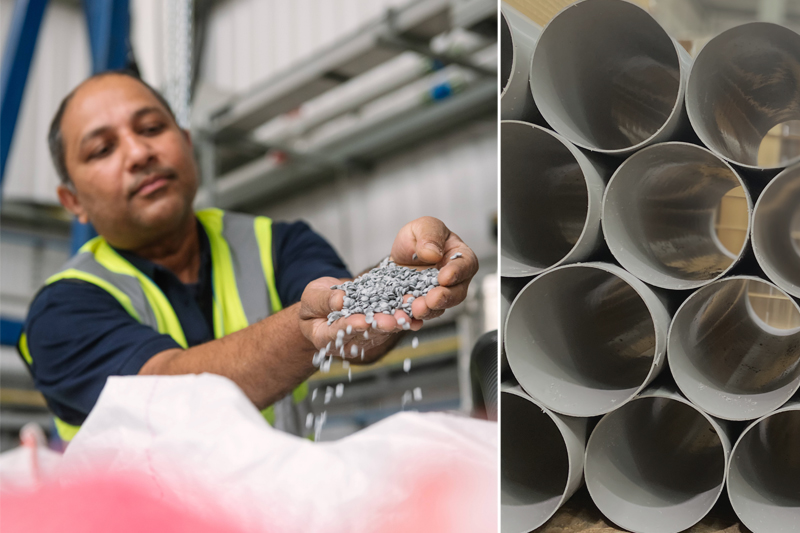Vent-Axia has welcomed the launch of the Government’s new public information campaign which highlights how ventilating indoor spaces can reduce the risk of coronavirus infection by over 70%1.
As part of the campaign a new short film released by the Government shows how coronavirus lingers in enclosed spaces, and how to keep your home ventilated. The campaign follows The World Health Organisation (WHO) recently acknowledging that: “Ventilation represents a very important factor to prevent the virus from spreading indoors,”2 having updated its guidance to recognising the possibility of airborne transmission on 9th July.3 Public Health England’s guidance ‘COVID-19: epidemiology, virology and clinical features’4 also recently acknowledged that airborne transmission can occur in ‘poorly ventilated’ spaces.
Vent-Axia has praised the Government’s new Public Health information campaign since the company has seen first-hand how ventilation has helped fight the virus. The leading British ventilation manufacturer has helped in the national response against COVID-19 by supplying ventilation to a number of COVID hospital wards and field hospitals, including the NHS Nightingale Hospital in London and the Rainbow hospitals.

The Government’s campaign, forms part of its wider ‘Hands. Face. Space’ guidance, and includes the new short film created with scientists and an engineer at Leeds University. Professor Catherine Noakes, Leeds University, was an adviser for the short film and, says: “When a room does not have any fresh air, and where people are generating large amounts of aerosol through activities such as singing and loud speech, that is when transmission of coronavirus is most likely. Fresh air must come from outdoors – recirculating air just means the aerosols containing the virus move around the same room rather than being extracted outdoors.
“Ventilation units or any household systems that use outdoor air can be just as effective as opening windows or doors as long as they are limiting the recirculation of the same air.”5
The short film illustrates how in enclosed spaces where there is no fresh air coronavirus stays in the air, increasing the risk of people breathing in infected virus particles. This risk can be reduced significantly by regularly ventilating enclosed areas with the film advising that using extractor fans in bathrooms and kitchens more frequently will remove particles quicker.





